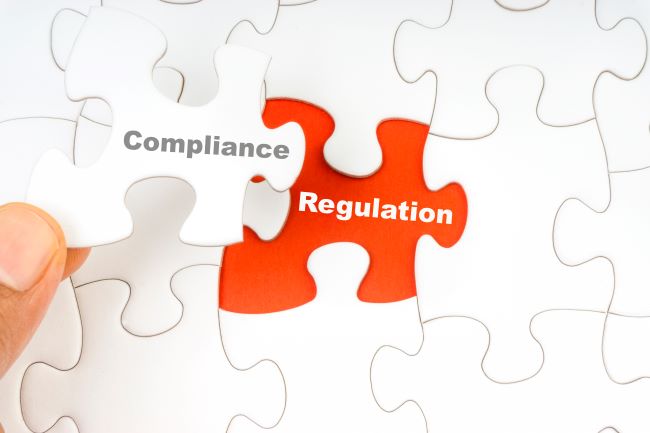Staying compliant with Medicare’s rules and regulations is a year-round mission for Medicare agents. Since Medicare often updates its compliance requirements, it’s important to stay current. AEP 2024 is fast approaching. Before the busy season begins is a good time for a quick refresher on how to stay compliant.
Clarification on Call Recordings
You must record all sales, marketing, and enrollment calls, including any calls made via teleconferencing. You do not need to record calls to set appointments or for check-ins after sales.
TPMO Disclaimer Update
You must include the appropriate disclaimer in all your marketing materials and within the first minute of a phone call.
The disclaimer for TPMOs that do not sell all MA and/or Part D plans within a service area is:
“We do not offer every plan available in your area. Currently we represent [insert number of organizations] organizations which offer [insert number of plans] products in your area. Please contact Medicare.gov, 1-800-MEDICARE, or your local State Health Insurance Program (SHIP) to get information on all of your plan options.”
For TPMOs that sell all MA and/or Part D plans within a service area, the disclaimer is:
“Currently we represent [insert number of organizations] organizations which [insert number of plans] products in your area. You can always contact Medicare.gov, 1-800-MEDICARE, or your local State Health Insurance Program (SHIP) for help with other plan choices.”
Prospecting and Outbound Call Rules
Whenever possible, it’s best to have a prospect to call you. In-person appointments are always the most effective, as they allow you to build a rapport with potential new clients.
You may call:
- Current enrollees.
- A new client who gives you permission, such as through a business reply card.
- To return a phone message or to respond to an email requesting contact.
You may not call:
- Referrals – they must call you. You may ask current clients to give you names and addresses of referrals, but you must not request phone numbers or email addresses. You may solicit new members by conventional mail only.
- Someone who attended a sales event, unless the person gave you express documented permission.
- Prospects through unsolicited phone calls. This includes calling to check if they received something you mailed them.
- About other business in the attempt to generate a Medicare lead (known as bait and switch).
Advertising and Marketing
- You may not include the word “Medicare” in your business name, logo, or URL.
- You may not advertise plan-specific benefits without including the name of the MA or Part D sponsor.
- You must ensure the plan you are advertising is available in the service area you are targeting.
- CMS prohibits the use of superlatives – such as “best” or “lowest” – in marketing materials, unless you can prove these statements are true.
- Marketing materials must not reference generalized savings that may not apply to specific individuals.
Advertisements and invitations to sales and marketing events must include the following statements:
- “A salesperson will be present with information and applications.”
- “For accommodations of persons with special needs at sales meetings, call <insert phone and TDD number>.”
Appointment Setting and Marketing Events
- You may only set an appointment after at least 48 hours have passed since you received the signed SOA. There are some exceptions, such as walk-ins and if the beneficiary is nearing the end of a valid enrollment period.
- SOAs and BRCs are now valid for a 12-month period. You must keep track of the date you received them. After 12 months pass, you need to acquire renewed permission from the beneficiary to discuss plan details.
- You must not set appointments or collect SOAs at educational events. You are still allowed to distribute permission-to-contact cards, BRCs, and business cards.
- Marketing events must not occur within 12 hours of an educational event at the same building or adjacent location.
- You may not engage in marketing activities where patients receive health care, such as exam rooms or pharmacy counters. Common areas, such as lobbies or cafeterias, are acceptable.
Agents Must Discuss the Impact on Current Coverage
Whenever clients or new prospects make an enrollment decisions, in addition to covering all the plan specifics, you must clearly explain the impact of the decision on their existing coverage. This includes disenrollment from their current plan and any cost changes.
Rules for Gifts
CMS has set a single gift limit of $15 per person and a yearly limit of $75 per person. Cash gifts are not allowed. Gift cards are permissible provided they are for small local businesses, such as restaurants, coffee shops, gas stations, etc. Medicare considers gift cards for big box stores, such as Walmart and Target, as equivalent to cash.
You may offer a gift for a referral, but you must not inform clients that you will be providing them with a gift when soliciting for leads. You must make gifts for referrals available to all members who provide referrals and must give the gift regardless of whether the prospect actually enrolls.
You may not provide meals, but beverages and light snacks are fine.
Compliance Matters
By adhering to Medicare’s compliance guidelines, you protect not only yourself but also your clients. Failure to comply can have significant consequences for your business. Have questions? PTT Financial is here to support you during AEP and the rest of the year. Contact us today.

